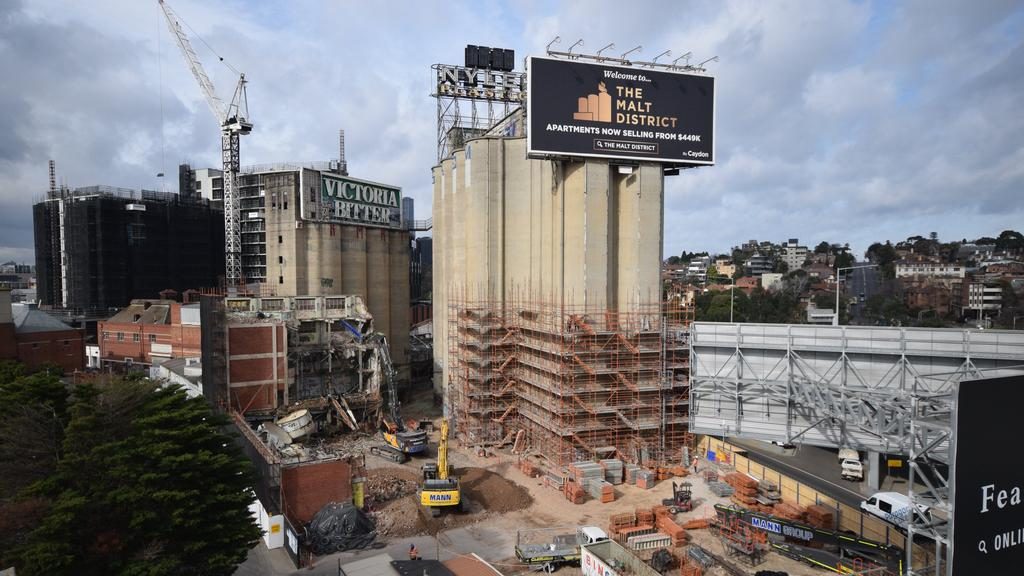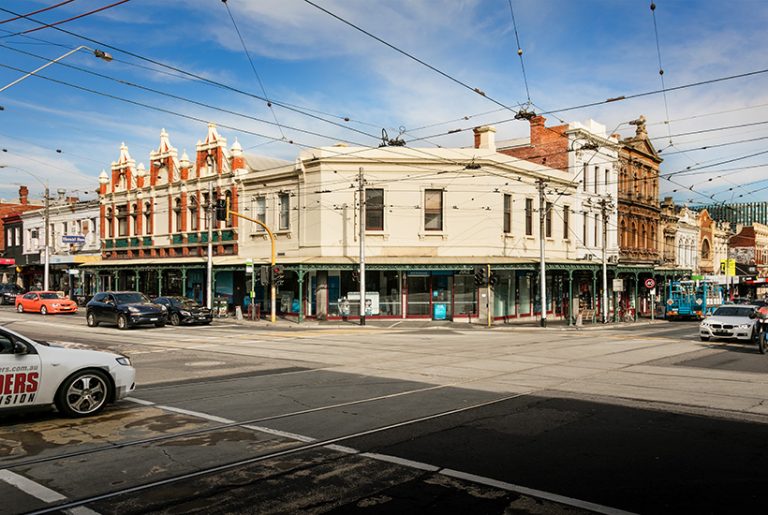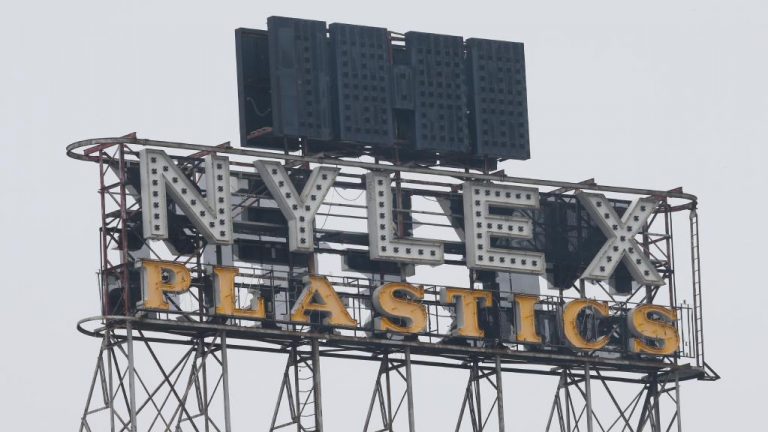Silos next to Melbourne’s Nylex Clock face ‘The Punisher’

Seven silos connected to those beneath Melbourne’s iconic Nylex Clock are being prepared for “a pretty careful bit of demolition” — by a robot named The Punisher.
Built in the 1960s, after the site’s heritage protected main silos, the towering cylinders will be dismantled in 1m sections by the affectionately named demolition bot and its twin.
The works were planned to commence mid this month, but are likely to be delayed as a result of Melbourne’s stage four lockdown.
However scaffolding has already begun to be installed around the concrete towers as Caydon Property Group prepares the second phase of demolition at the former Richmond Maltings.

How the project will look once completed.
The prominent Cremorne property, set between the Monash Freeway and Hoddle Street, is undergoing a $1 billion transformation into a new lifestyle hub called The Malt District.
Caydon boss Joe Russo had the popular Nylex Clock switched on briefly earlier this year for the first time in a decade, with plans to refurbish it and make it even more prominent when the redevelopment is completed. It is not expected to be illuminated again until 2022, when a restaurant and bar are intended to join the sign at the top of the silos.
Mr Russo said the seven less-significant silos being removed would be approached with caution and not impact the clock.

The robot affectionately known as The Punisher.

The robot will be installed on a descending platform inside the silos.
“Given their height, demolishing the silos requires a sophisticated methodology and Caydon has adopted cutting edge, remote controlled technology that will slowly break down the concrete of each structure and let it fall to ground level within the silos,” he said.
Multi-award-winning architectural firm Lovell Chen is overseeing the site’s heritage works to ensure the iconic silos beneath the clock and a nearby group supporting a popular VB sign are not damaged.
Founding principal Peter Lovell said the hi-tech approach would expose the western end of the silos for the first time in half a century — though it was not known what condition the long concealed section would be in.
“The critical issue is obviously stability and a lot of engineering work has gone into making sure the ones to remain are fairly stable and protected from debris,” Lovell says.

The silos beneath the Victoria Bitter sign will be turned into the Silos Studios office space.
“It’s a pretty careful bit of demolition.”
The demolition paves the way for a new wave of construction at the site set to create 2400 jobs.
It follows the developer recently topping out the 14-storey Coppins Corner residential tower built at the future lifestyle precinct, with residents to begin moving in early next year. Office space, a 206-room 25Hours hotel, a microbrewery, plus a restaurant and retail precinct will also feature when the project is complete.
It will feature 200 apartments when completed, though initial plans called for 1000.
Caydon bought the mostly derelict site for $38 million 2014.

About 100,000 bricks will be recycled at the project.

Restaurant and retail space is also being developed at the landmark Cremorne project.
The Husqvarna DXR 300 robot tasked with the heavy lifting in the demolition is about 1m in size, but has a 4m-long arm that can be fitted with a claw hand, and will be controlled by an operator outside the silo.
This will be used to break the silos down in 1m sections, then fold them back into the silo where they will be dropped to the base and removed without damaging heritage aspects neighbouring the demolition work.
The use of robots on construction sites is becoming increasingly common in dangerous or difficult to reach locations, and in the past a human with a jackhammer would have had to do the work from inside the silos.
About 100,000 bricks at the site will be reused, and industrial machinery from the Richmond Maltings heyday will be on display.
This article from the Herald Sun originally appeared as “The Malt District: Seven silos next to Nylex Clock face The Punisher”.







